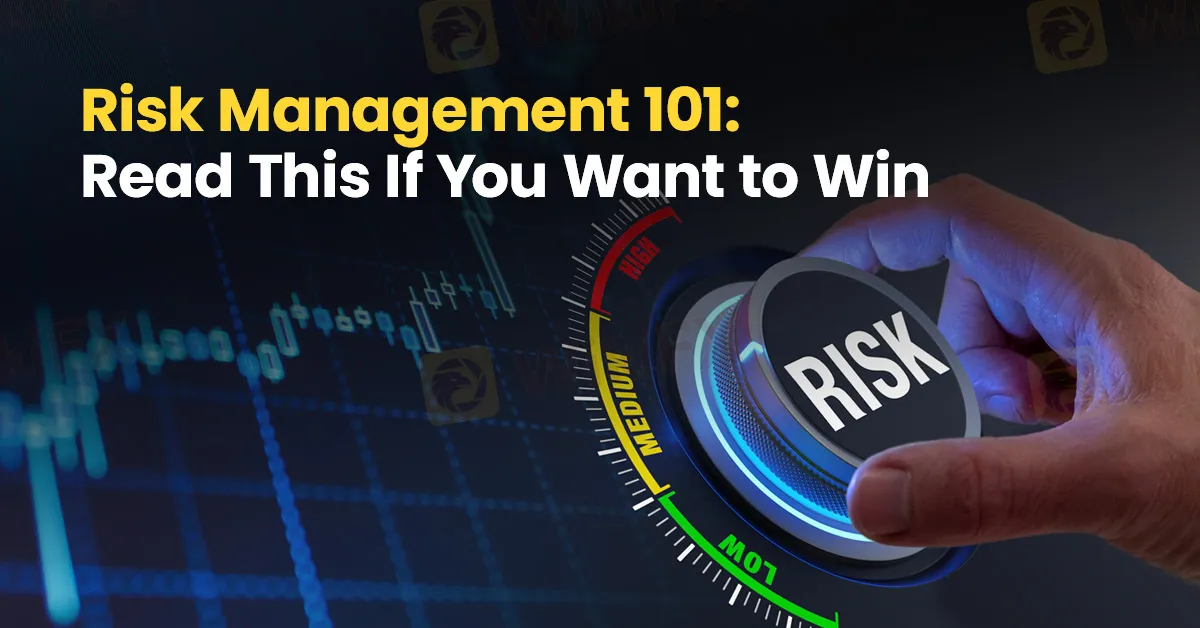Risk Management 101: Read This If You Want to Win
Abstract:This must-read article emphasizes the importance of prioritizing risk management over chasing profits in online trading, outlining key strategies to protect capital and achieve long-term success.

In the fast-paced world of online trading, the allure of substantial monetary gains often overshadows the fundamental principles of prudent investing. While the potential for high returns can be tantalizing, seasoned traders understand that the true key to long-term success lies in robust risk management. This article delves into why focusing on risk management rather than simply chasing profits is crucial for any trader aspiring to achieve sustained success.
Risk management in trading refers to the identification, assessment, and prioritization of risks, followed by the application of resources to minimize and control the probability or impact of unfortunate events. Effective risk management strategies are essential for protecting your trading capital and ensuring that you can continue to participate in the market, even during periods of volatility or loss.

The pursuit of high returns without a clear risk management strategy is a common pitfall among novice traders. This approach can lead to significant losses, as traders may take on excessive risk in hopes of achieving quick gains. Emotional decision-making, driven by greed or fear, often exacerbates this issue, resulting in impulsive trades and poor outcomes.
One of the most fundamental aspects of risk management is determining the appropriate size of each trade. By limiting the amount of capital allocated to a single trade, traders can reduce the impact of any one loss on their overall portfolio. A common rule of thumb is to risk no more than 1-2% of your trading capital on a single trade.
Implementing stop-loss orders is a critical practice for managing risk. A stop-loss order automatically closes a trade when the price reaches a predetermined level, thus limiting potential losses. This helps traders avoid the temptation to hold onto losing positions in the hope of a turnaround.
Spreading investments across different assets or markets can help mitigate risk. Diversification reduces the likelihood of a single adverse event significantly impacting the entire portfolio. By not putting all your eggs in one basket, you can better manage and distribute risk.
Before entering any trade, its essential to evaluate the potential reward relative to the risk. A favourable risk-reward ratio means that the potential profit from a trade should outweigh the potential loss. A common target is a risk-reward ratio of at least 1:2, meaning the expected profit should be at least twice the potential loss.
Maintaining emotional discipline is crucial in risk management. Traders must adhere to their risk management plan and avoid making decisions based on emotions. Sticking to predefined rules and strategies helps in maintaining consistency and preventing impulsive, high-risk trades.
Traders who prioritize risk management over chasing profits tend to experience more consistent results. By protecting their capital and minimizing losses, they are better positioned to take advantage of profitable opportunities when they arise. Additionally, effective risk management can lead to improved psychological well-being, as traders are less likely to experience the stress and anxiety associated with significant financial losses.
While the prospect of quick profits can be enticing, the reality of trading requires a disciplined approach to risk management. By focusing on controlling risk rather than solely chasing monetary gains, traders can build a solid foundation for long-term success. Remember, in the world of trading, it's not just about how much you can make, but how much you can keep. Implementing sound risk management practices is the cornerstone of a sustainable and profitable trading strategy. Embrace risk management, and youll be well on your way to becoming a successful trader.

Read more

Why Even the Highly Educated Fall Victim to Investment Scams?
Understanding why educated individuals fall victim to scams serves as a stark reminder for all traders to remain vigilant, exercise due diligence, and keep emotions firmly in check.

Beware of Deepfake 'Experts' and Fake Apps: Protecting Yourself from Trading Scams
In recent years, the rise of deepfake technology and sophisticated online exploitation tactics have led to a dangerous surge in share-trading frauds. Cybercriminals have evolved their methods to deceive even the most cautious investors, making it increasingly challenging for individuals to discern genuine opportunities from scams.

What Happens if A Broker Goes Bust?
For traders, understanding what happens when a broker collapses is crucial. It serves as a reminder that choosing the right broker involves more than just attractive spreads and swift execution; it’s about safeguarding funds in case things go wrong.

Trading is Not Gambling—Unless You Make It So
In the world of online trading, a common misconception persists: trading is often seen as no different from gambling. This belief is particularly prevalent among newcomers, who may view the financial markets as a fast-paced game where winning is just a matter of luck. But trading, when done correctly, is far from mere chance!
WikiFX Broker
Latest News
CWG Markets Got FSCA, South Africa Authorisation
Amazon launches Temu and Shein rival with \crazy low\ prices
CySEC Warns Against Unauthorized Investment Firms in Cyprus
Revolut X Expands Crypto Exchange Across Europe, Targeting Pro Traders
Crypto Scammer Pleads Guilty in $73 Million “Pig Butchering” Fraud
Capital.com Shifts to Regional Leadership as CEO Kypros Zoumidou Steps Down
Broker Review: Is Exnova Legit?
Why Even the Highly Educated Fall Victim to Investment Scams?
Warning Against Globalmarketsbull & Cryptclubmarket
FBI Raids Polymarket CEO’s Home Amid 2024 Election Bet Probe
Rate Calc
